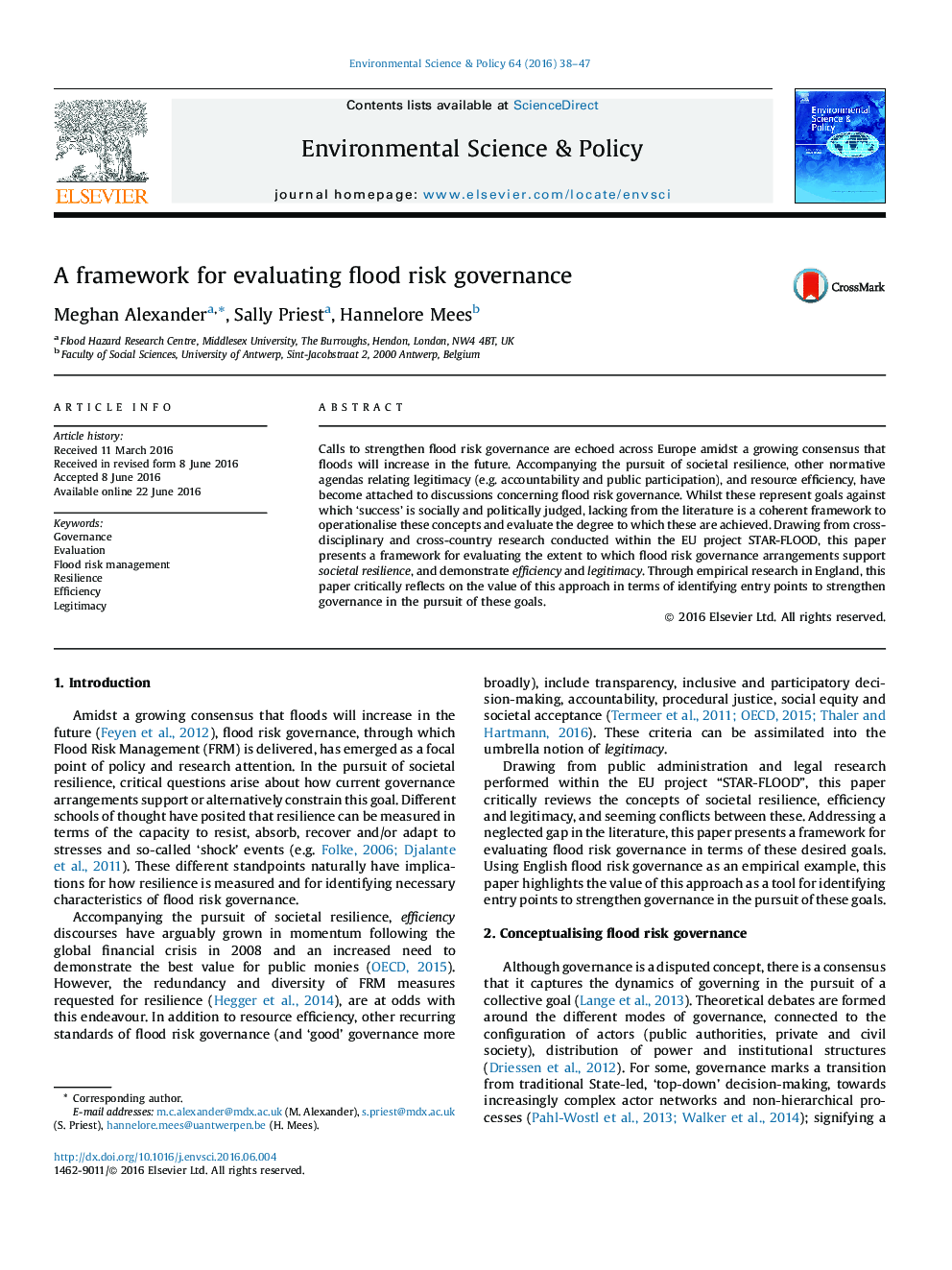| کد مقاله | کد نشریه | سال انتشار | مقاله انگلیسی | نسخه تمام متن |
|---|---|---|---|---|
| 1053417 | 1485044 | 2016 | 10 صفحه PDF | دانلود رایگان |
• Flood risk governance is required to support societal resilience, resource efficiency and legitimacy.
• A coherent evaluation framework is proposed and tested through empirical research conducted in England.
• Evaluation of flood defence and mitigation governance in England reveals considerable strengths in the current approach.
• Also identified are entry points for strengthening governance in the pursuit of resilience, efficiency and legitimacy.
• The framework provides a necessary first step in assessing, monitoring and strengthening flood risk governance.
Calls to strengthen flood risk governance are echoed across Europe amidst a growing consensus that floods will increase in the future. Accompanying the pursuit of societal resilience, other normative agendas relating legitimacy (e.g. accountability and public participation), and resource efficiency, have become attached to discussions concerning flood risk governance. Whilst these represent goals against which ‘success’ is socially and politically judged, lacking from the literature is a coherent framework to operationalise these concepts and evaluate the degree to which these are achieved. Drawing from cross-disciplinary and cross-country research conducted within the EU project STAR-FLOOD, this paper presents a framework for evaluating the extent to which flood risk governance arrangements support societal resilience, and demonstrate efficiency and legitimacy. Through empirical research in England, this paper critically reflects on the value of this approach in terms of identifying entry points to strengthen governance in the pursuit of these goals.
Journal: Environmental Science & Policy - Volume 64, October 2016, Pages 38–47
